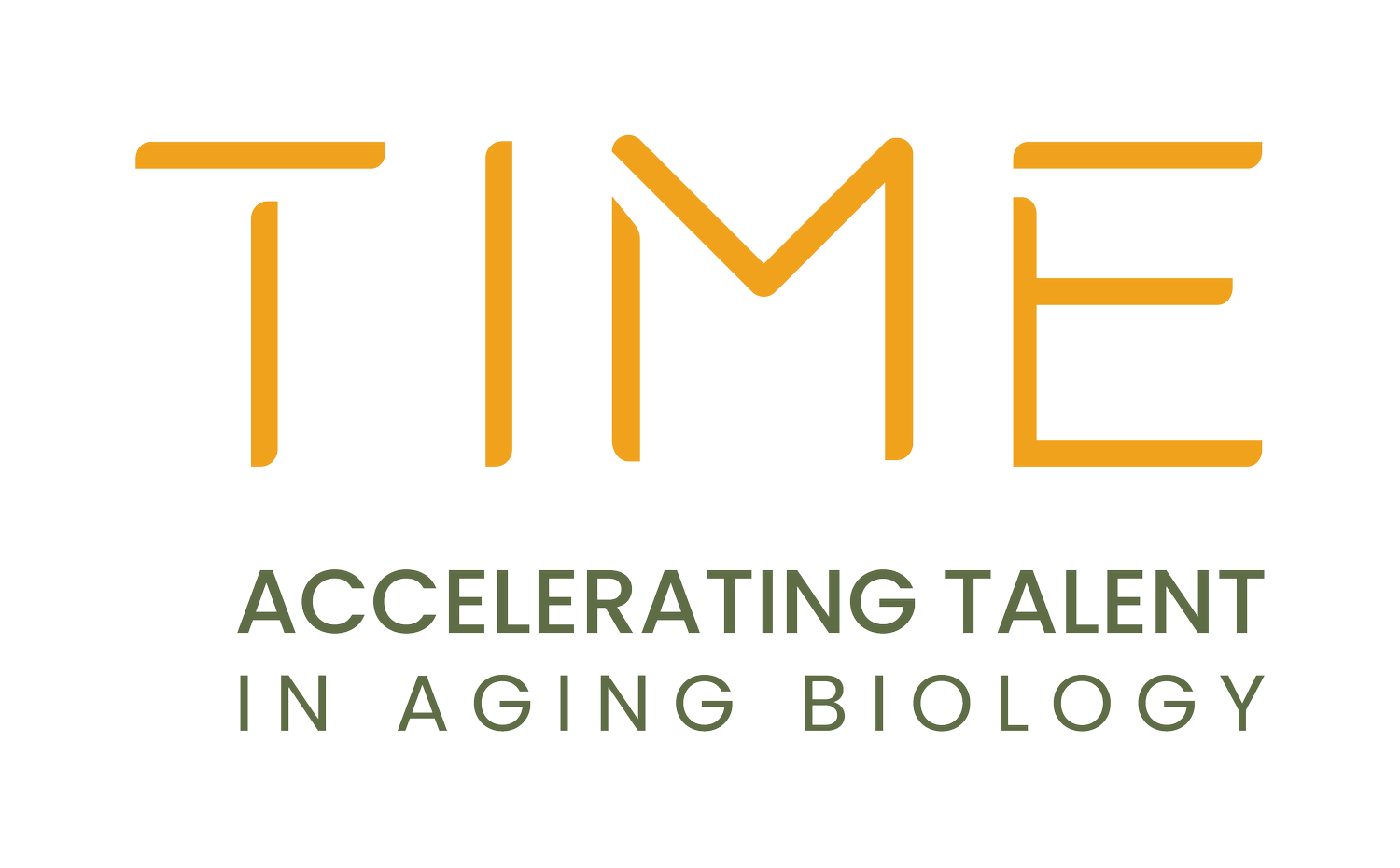Moments in TIME: Fellows Shaping the Future of Aging - Julie Chen
Julie Chen is a natural deep thinker whose curiosity drives her to explore fundamental questions in aging biology. After taking a year off from school to work full-time in the Gladyshev Lab at Harvard Medical School, where she studied DNA methylation and cellular aging, Julie returned to Stanford, now conducting research in the Loh Lab. Her current focus on cell lineage segregation and development may seem distant from aging biology, but Julie believes that understanding cellular decision-making is crucial, as these processes can go awry during aging. Beyond her research, Julie has made a lasting impact in the TIME Fellowship community, staying closely connected with her peers and drawing inspiration from their work. With her dedication to both science and the TIME network, Julie is building a foundation for discoveries that could one day shape regenerative medicine and deepen our understanding of aging.
Courtney: Hi Julie! I’m excited to talk about your journey and research. To start, can you tell us about your current research focus?
Julie: I’m studying how cell lineages become segregated in the developing mammalian embryo. My current interests are in the development of the fetal extra-embryonic membranes which emerge around gastrulation, with a particular focus on the umbilical cord.
Courtney: That’s fascinating! Some people might not see the immediate connection to aging biology—how do you think your work ties into this field?
Julie: Although this work may not seem directly related to aging research, understanding how cell fate is regulated in the natural phenomenon of the developing embryo is of fundamental importance to understanding how cellular decision-making goes awry in diseases like aging.
Courtney: It’s amazing how interconnected these processes are. What impact do you hope your work will have in the long run?
Julie: I hope my research will improve our knowledge of how the diversity of cell types is formed and regulated in the human body. Eventually, I look forward to applying these basic science insights towards regenerative medicine, like tissue or organ replacement.
Courtney: You've already accomplished so much—what are some of the milestones in your career that you’re most proud of?
Julie: After my sophomore year, I received a small grant to work on a year-long research project studying DNA methylation and aging. I took a year off from school to work on this full-time and this experience really helped me to solidify my interests in aging, regeneration and development. Last year, I also won the Goldwater Scholarship, and just earlier this year, I got the opportunity to share my most recent work in a talk at a departmental retreat.
Courtney: That’s impressive! What inspired you to pursue aging biology in the first place?
Julie: My interest started in my first research lab, where I studied lysosomal biology and neurodegenerative diseases associated with lysosomal dysfunction. I was intrigued by how relatively little was known about the pathogenesis of age-related neurodegeneration compared to monogenic lysosomal storage disorders. I continue to be fascinated by aging biology because there are still so many seemingly simple, yet unresolved, questions. Furthermore, I think that understanding the broader aging process will open up doors for treatment of a myriad of age-related diseases.
Courtney: I’d love to ask about your experience with the TIME Fellowship. What has being part of this community meant to you?
Julie: As a TIME fellow, I’ve had a truly wonderful opportunity to meet and befriend an incredible group of peers who are just as excited as I am about science and biology. Over the past year, I’ve gotten a lot closer to the other fellows and am continually inspired by hearing about all the cool work they are up to. I’m very grateful for the TIME fellowship for building this awesome community and providing funding support for my work.
Courtney: That sense of community sounds incredible. I know you’ve also had a chance to connect with fellows in person at the retreat—what was that experience like?
Julie: The retreat was an incredible experience and helped set a strong foundation for my connections with the fellows, many of which I still keep in close touch with.
Courtney: Finally, what advice would you give to someone considering applying for the TIME Fellowship?
Julie: The TIME Fellowship has been such a rewarding experience for me. If you're passionate about science and aging biology, it’s truly a once-in-a-lifetime opportunity. The combination of mentorship, funding, and community has been invaluable, and it’s made a real difference in my career so far.



